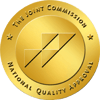Alcohol consumption starts for many people as a social activity that occurs without consequence. The acceptable times, amounts, and reasons vary from person to person and are dependent on a number of variables. Many people will remain within their acceptable norms for drinking and never experience an increased desire for more.
Some will increase their drinking patterns and also realize an increased tolerance or even “a need” for alcohol to help cope with life stressors. If one's drinking increases, he or she might begin to experience serious consequences such as health or legal issues, relationship stress, or interference of social responsibilities. It can be difficult to determine if one's drinking has crossed the line to a problem or addiction.

Here are 10 common indicators to help determine if social drinking has crossed the line:
-
You drink more than you intended
Do you find yourself having one or two drinks and then being unable to stop? Or do you continue drinking even when you don't really want to? If so, these could be signs of an unhealthy relationship with alcohol.
-
You have an increased tolerance for alcohol
If your body needs more and more alcohol in order to feel the same effects as before, you may have an increased tolerance. This means that drinking can take more of a toll on your body and damage your health more easily, as the amount of alcohol needed for the same effects has increased. This is a sign that you should take a break from drinking and reevaluate your relationship with alcohol.
-
You experience withdrawal symptoms
If you’re having physical or psychological symptoms such as shaking hands, anxiety, irritability, and insomnia when you stop drinking after a long period of heavy drinking, this could be an indication of alcohol dependence.
-
Alcohol Becomes the Focus
If thoughts of drinking become all-consuming and it is the center of most activities, then this may be a sign that drinking is taking over your life. Making plans based on when and where you'll drink, or prioritizing drinking over other important things are signs that it has become an unhealthy part of your life.
-
You prioritize drinking over other activities
Have there been times where you have chosen to drink even though it is creating conflict in relationships, or causing problems at work?
-
You find yourself hiding your drinking from friends and family
If you feel guilty, embarrassed, or ashamed when it comes to the amount of alcohol that you consume, this could be a sign that your drinking is becoming a problem. If you try to hide your drinking from those closest to you, then this could indicate an unhealthy relationship with alcohol.
-
Your relationships have been affected by your drinking habit
Alcohol can cause people to act in ways they normally wouldn't, which can lead to arguments and strain on relationships with friends and family members. If you notice that your social life has suffered due to your drinking, it's time to take a step back and assess the situation before it gets worse.
-
Your work has been affected by your drinking habit
Drinking while at work, or coming into work hungover, can have serious implications for your job security and career prospects. It can also make it difficult to concentrate on tasks throughout the day if you are still recovering from a night of heavy drinking.
-
You use alcohol to cope with difficult feelings or situations
Drinking excessively can often be a form of self-medication, and it's important to recognize when this behavior has become unhealthy and unsustainable. If you rely on alcohol to cope with life's struggles, then it may be time to get professional help in order to find healthier coping methods.
-
You want to stop but cannot
Maybe you've been concerned enough that you've already thought about or actually tried to cut down on your drinking -- and it didn't happen. Alcohol masks unhappy emotions, so those feelings may come back when you quit drinking, making it harder to stick to your goal. If you try to abstain, but then obsess over alcohol or switch to another drug or behavior, that's a red flag.
These 10 symptoms are some of the signs that could indicate that your social drinking habit is becoming problem drinking. If any of these signs sound familiar, it’s important to take a step back and assess the situation. It’s never too late to make changes in order to lead a healthier lifestyle — and seeking help when needed can make all the difference. Remember that recovery is possible, and you don't have to go through this alone. With support, anyone can get their life back on track and reduce their risk of alcohol-related problems.
If you think you might have an alcohol problem, the first thing to do is to talk to your doctor for advice on how to stop drinking. Your doctor can also suggest different treatments if he thinks this will help in your situation. Some people find it helpful to participate in group therapy sessions with other people who are struggling with alcohol. Other options include going into a rehabilitation facility or attending a 12-step program, such as Alcoholics Anonymous.
In the end, if you want to overcome an alcohol problem, the most important thing is to have the right mindset and be determined to make a change. You can do it! The first step towards sobriety is seeking treatment and taking control of your drinking habits.
Soberman's Estate is a residential men's addiction treatment center that provides discreet, individualized, sophisticated recovery and wellness services for adult men that want to recover from substance use disorders, and or other behavioral issues such as trauma, anxiety, depression, stress, or other addictions.





